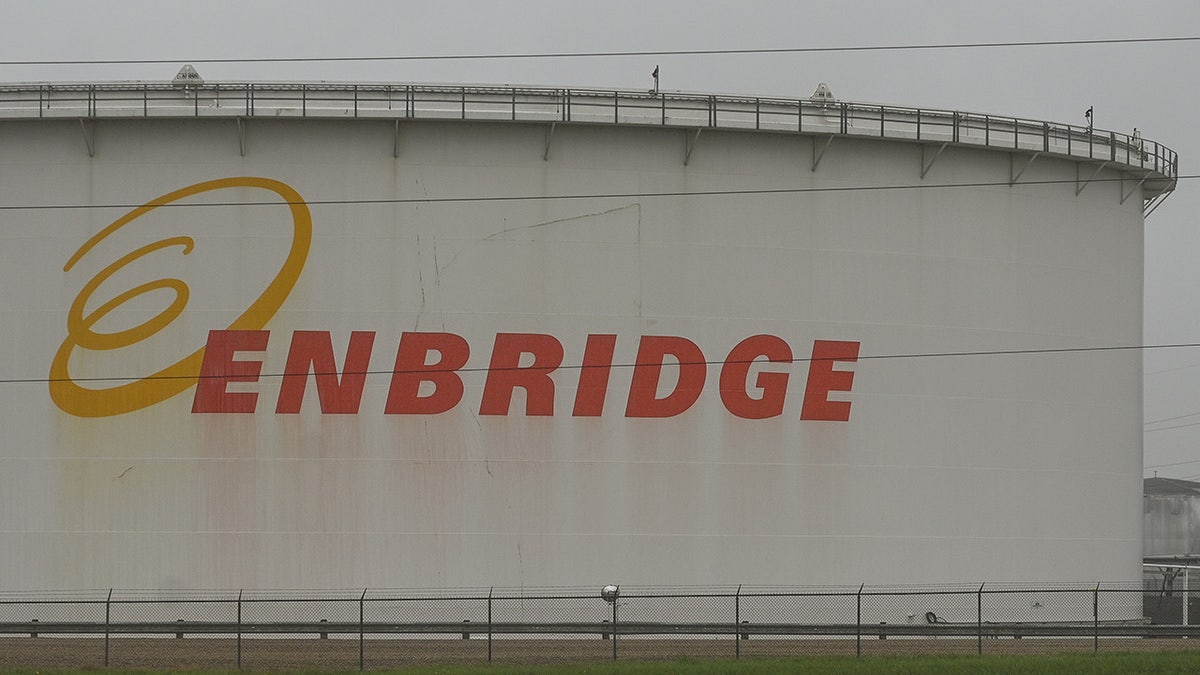
The Biden administration’s Department of Justice sided with a Native American tribe in claiming a massive underground pipeline carrying fuel from Wisconsin to Canada is trespassing on tribal lands.
In an amicus brief filed in the U.S. Court of Appeals for the 7th Circuit, DOJ lawyers agreed with the Bad River Band of the Lake Superior Tribe of Chippewa Indians in arguing that Enbridge Energy Company, is “liable for trespass” due to its operation of Line 5, a pipeline that moves millions of gallons of crude oil and natural gas liquids each day between Superior, Wisconsin and Sarnia, Ontario,
Roughly 12 miles of Line 5 cross into the Reservation of the Bad River Band in northern Wisconsin, and the pipeline was constructed along “rights-of-way” obtained by the Department of Interior in the 1950s and renewed multiple times over the following decades. Enbridge’s rights-of-way for 12 parcels of land that are at the center of the lawsuit expired in 2013, and the tribe did not consent to their renewal. After the tribe sued in 2019, the Department of Interior denied the energy company’s request for renewal in 2020.
“Since Enbridge has not obtained renewed rights-of-way, it lacks any legal right to remain on those lands and thus is in trespass,” the brief says. A lower court, the Western District of Wisconsin, “correctly rejected Enbridge’s arguments that the Administrative Procedure Act or the 1992 agreement authorizes it to remain on these lands,” Biden administration lawyers wrote.
BIDEN ADMIN OKS MAJOR PACIFIC NORTHWEST GAS PIPELINE IN BLOW TO ENVIRONMENTALISTS, DEMS

The Enbridge oil refinery in Edmonton, Alberta, Canada, on Wednesday, April 5, 2023. (Jason Franson/Bloomberg via Getty Images)
The Justice Department added that the district court did not properly consider “the potential removal or rerouting of an active international pipeline that falls under a treaty between the United States and Canada regarding transit pipelines.”
Under the Pipeline Safety Act, “Congress directed the Department of Transportation to adopt and enforce nationwide safety standards for pipeline transportation and facilities, including standards to prevent and mitigate potential environmental damage pipeline operators may cause,” the brief says. The DOJ argues the appeals court should reevaluate Judge William Conley’s decision to close the pipeline by 2026.

Enbridge Inc., a multinational pipeline company headquartered in Calgary, seen on Jan. 25, 2024, in Edmonton, Alberta, Canada. (Artur Widak/NurPhoto via Getty Images)
“The United States also has a strong interest in ensuring that courts properly consider whether injunctive orders affecting the operation of Line 5 may risk exposing the United States to claims that it has violated its obligations under the Transit Pipeline Treaty and that seek potentially substantial monetary damages, and may affect the United States’ trade and diplomatic relations with Canada — in addition to considering the implications of the Band’s treaty rights,” the brief says.
THE BIGGEST CORPORATE WELFARE SCAM EVER IS GREEN
The Biden administration supported a total restitution award of roughly $5 million “for a nearly ten-year trespass – while in the same period Enbridge earned well over $1 billion in net profit from Line 5.” “The intricacy of the equitable factors associated with injunctive relief in this unique case make it all the more important that the court’s monetary award adequately serves the goals of restitution,” the brief says.

The Enbridge Terminal and Pipelines next to the Suncor Energy Refinery, on August 23, 2023, in Sherwood Park, Strathcona County, Alberta, Canada. (Artur Widak/NurPhoto via Getty Images)
“We are grateful the US urged the court not to let Enbridge profit from its unlawful trespass. But we are disappointed that the US has not unequivocally called for an immediate end to Enbridge’s ongoing trespass, as justice and the law demand,” Bad River Band Chair Robert Blanchard said in a statement. “Enbridge should be required to promptly leave our Reservation, just like other companies that have trespassed on tribal land. We are hopeful that the appeals court will put an end to Enbridge’s shameful decade of trespass and not condone its exploitation of our land and sovereign rights.”
CLICK HERE TO GET THE FOX NEWS APP
“Shutting down Line 5 before relocating the pipeline outside the Reservation would violate the 1977 Transit Pipeline Treaty between the U.S. and Canada. The Government of Canada has made its position clear,” a spokesperson for Enbridge told The Hill. “Such a shutdown is not in the public interest as it would negatively impact businesses, communities and millions of individuals who depend on Line 5 for energy in both the U.S. and Canada.”








